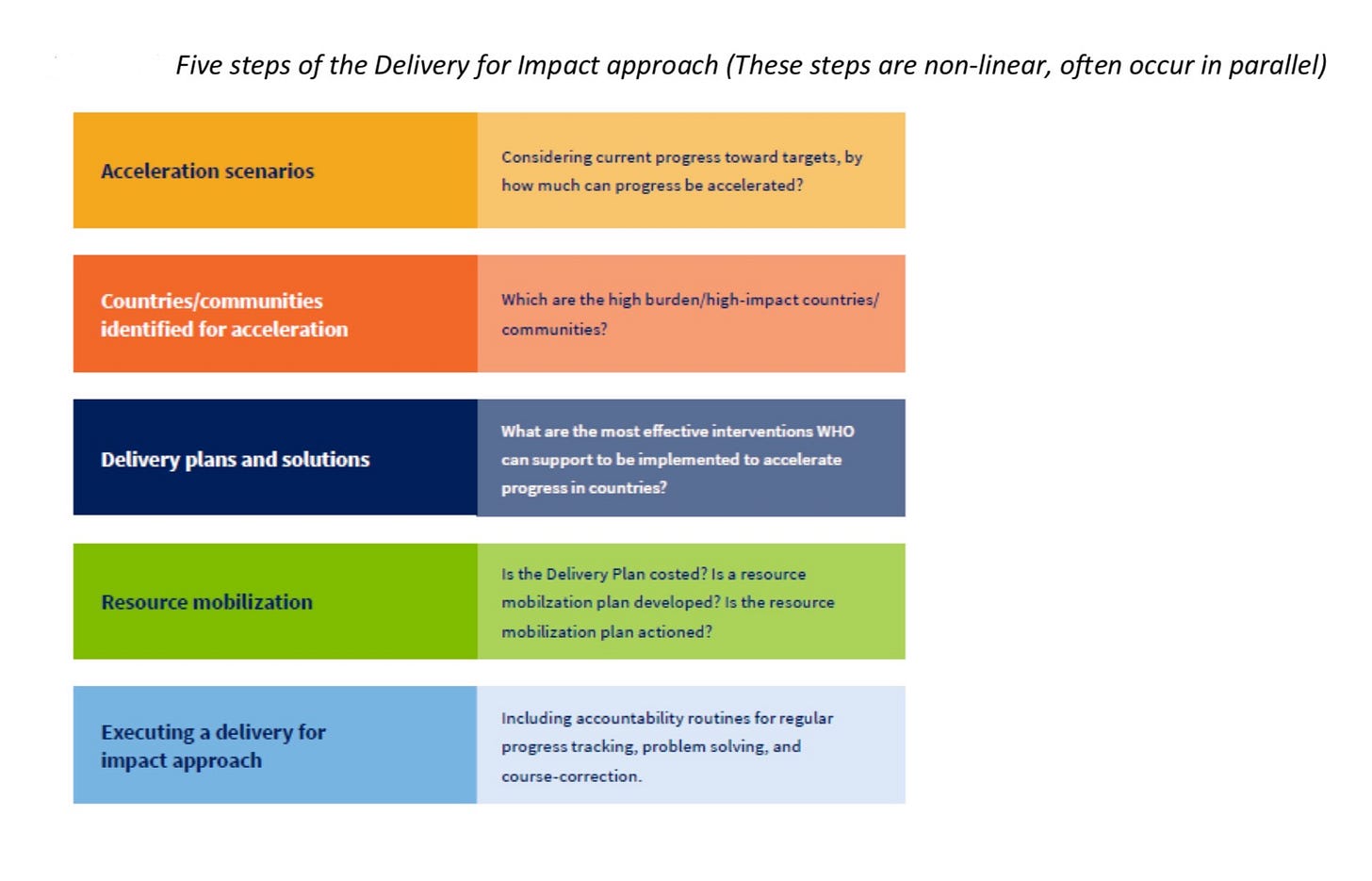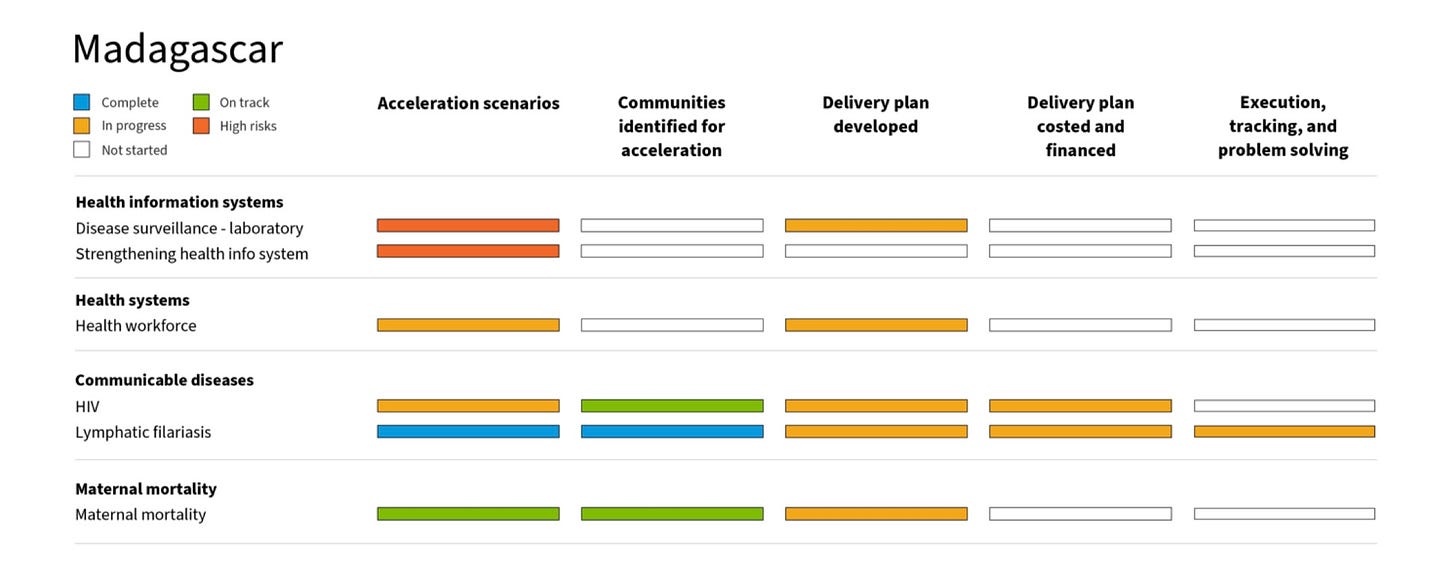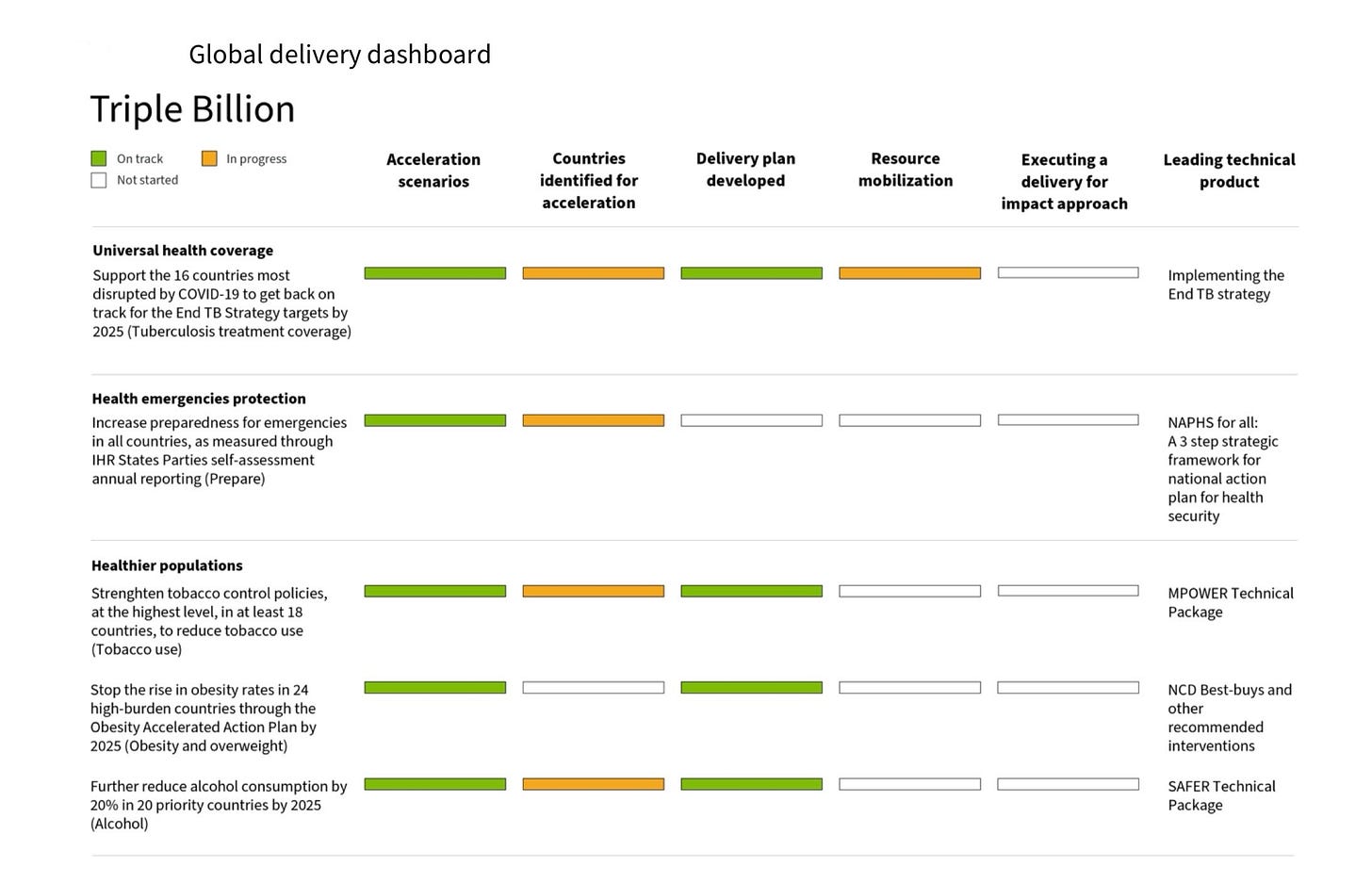Everyone says they care about results. But most people don’t act like it. Why?
I think there are three reasons:
Results are hard
Talk is fun
People hate accountability
What is a result? Ultimately it’s an improvement in the health or life of a person. That is called impact or outcome. But to get there, you or your organization has to do something. That is called an output. Here, when I talk about results, I am talking about both. As we shall see, how outputs drive outcomes is key.
As T.S. Eliot wrote:
Between the idea
And the reality
Between the motion
And the act
Falls the Shadow
In this blog, I explore the shadow that separates talking about results and acting to achieve them. By naming and owning the reasons that cast this shadow, I hope we can achieve better results. Although I am focused on Sustainable Development Goals (SDGs) and the multi-lateral system, the reasons apply to any social challenge.
Results are hard
There is a reason that the SDGs are so far behind: results are hard. They are not only hard to achieve but also hard to measure. The SDGs are a great benefit here: they provide a measurement system with 169 targets across a wide range of social goals. These are the outcomes we want, and they are the primary responsibility of governments. The tricky part is tying what your organization does to support the achievement of SDGs.
It took more than 5 years and a few false starts to figure this out at WHO, and it’s still a work-in-progress. WHO used the delivery for impact approach pioneered by Sir Michael Barber, but adapted it to the multilateral context.
The approach starts in countries, which are themselves primarily responsible for the SDGs. Countries could prioritize key health targets as you see below.
Then, this bottom up prioritization and progress could be aggregated to meet the global work of the organization, as you see in this dashboard below for WHO:
Talk is fun
Who doesn’t love taking a selfie and posting it on social media to tell the world about all the cool people you are meeting? This is often a way to tell others how important you are. These are often described as “high-level meetings” (have you ever seen a low level one?) I caricatured this trend when I met with an old friend on a ski trip:
(One exception is with senior public officials, like heads of UN agencies: who they meet and what they discuss can be a form of transparency. )
There is no question that high-level political support can drive results. But diplomacy shouldn’t replace results. Often in multilateral organizations we see a type of junior diplomacy theatre, with a focus on process. In an earlier blog, I even proposed a moratorium on planning, conferences and photo-ops until 2030 as a way to speed up the Sustainable Development Goals.
People hate accountability
If you’re accountable, you could get fired. That could get in the way of your career. Can you imagine a company losing money year after year and the CEO keeping their job? This blog title below captures the situation perfectly. As far as I know, no one has ever been fired for not meeting the SDGs. Programmes don’t get more budget and people don’t get more compensation for driving SDG impact. Perhaps the greatest disincentive of all is when process accomplishments (including hosting meetings!) are recognized in leader’s speeches as prominently as impact accomplishments.
The critical gap in accountability is often how to measure and manage the outputs of an organization so they drive SDG outcomes. As the example of WHO shows, this gap is hard to bridge, but it can be done. The system developed in health could be a pathfinder for the multi-lateral system as a whole. This is results-based multilateralism. It also applies to a wide range of organizations, public and private, addressing social challenges, because the SDGs provide an agreed set of metrics for a broad range of social challenges.
Conclusion: Get Sh*t Done
I have argued for a GSD approach to the SDGs (or, when I am being diplomatic, “results-based multilateralism”)— through leadership and partnership, data and delivery, and digital and innovation. In my last blog, I argued:
Given the turbulent geopolitical environment now and for the foreseeable future, our emphasis should be on implementing the ambitious agreements that have already been negotiated, rather than proposing new plans, strategies, and reforms. Let’s execute better on what we have already promised. Let’s take a GSD (Get Sh*t Done) approach to the SDGs (Sustainable Development Goals). That means focusing on execution (over planning), data and delivery (over inputs), and innovation (over status quo). I don’t think the GSD (Get Sh*t Done) approach eliminates the spoiler risk of geopolitics, but I do think that it could mitigate geopolitical risk and that results provide a new foundation for trust in the multilateral system.
How to take a GSD approach? Better people, better management, and better governance — all focused on results.
First, better people. Since efforts to solve global challenges are only as good as the people solving them, encourage young people to “find a problem and solve it.” Encourage them to see their careers as a series of problems they have solved, rather than the titles they have held. More entrepreneurship, less bureaucracy. In UN agencies, this means hiring and training more ‘diplo-preneurs’ to balance out the ‘diplo-crats.’
Second, better management. Create a culture of results. This requires leadership from top management, a system to measure and manage results, and consequences for exceeding or not reaching targets. Programmes that drive SDG results should get more budget and recognition.
Third, better governance. To make these management changes sustainable, embed the measurement and management of results in governance. Imagine if every time a governing board met, they started by reviewing progress against strategy. In my last blog, I sketched what a results-focused WHO Executive Board meeting would look like. If governance in multilateral institutions were to demand better results, we would speed up the SDGs.
Does anyone really care about results? I hope so. The Summit of the Future, in September 2024, offers a great opportunity for the multilateral system to show that they do care and get more serious about results. But I am not optimistic this pivot will happen. The reasons people say they care about results but then don’t execute — results are hard, talk is fun, and people hate accountability — cast a very dark shadow. Perhaps shining light where there is shadow will help.
[PS. Here is a video version of this blog.]









As usually! Very insightful and inspiring reflections. Thanks!